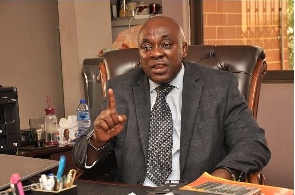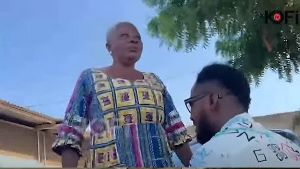 Joyce Aryee, Former CEO of Chamber of Mines
Joyce Aryee, Former CEO of Chamber of Mines
President John Mahama sounded as though he was campaigning when he delivered his last State of the Nation Address, former Chief Executive of the Ghana Chamber of Mines, Ms Joyce Aryee has said.
Critiquing Mr Mahama’s claimed achievements in the education sector, as presented to parliament on Thursday, 5 January in his last State of the Nation Address, Ms Aryee said: “For me, it was almost like a slap in the face because teachers have been complaining that they have not been posted."
"So to say that you’ve trained so many when they have not been posted to do their work, it is almost like doing a campaign," she told Joy FM's Nhyira Addo on Friday.
Below are the achievements touted by Mr Mahama in the education sector:
Mr Speaker, at the start of our term in office and for many years prior, there have been national dissatisfaction at the declining standards of education at the basic and secondary levels. Lack of access to both basic and secondary education meant that many children were being left behind.”
“A shortage of professionally trained teachers, teacher absenteeism, shortage of core textbooks- resulting in a situation in which four (4) children shared one textbook-, dilapidated schools, lack of science laboratories and workshops, among others, manifested in declining results at the Basic Education Certificate Examinations (BECE) and West African Secondary School Certificate Examinations (WASSCE).
“Our vision under my administration has been to turn this situation around and not only improve access to education but also the quality of education.
“We are witnessing a significant improvement in our educational outcomes. More children than ever before in our history are having access to education at the basic and secondary levels. With the distribution of free text books, children have access to all the four textbooks and no longer have to share.
“In excess of two thousand (2,000) dilapidated schools popularly referred to as “schools under trees” have been replaced. Teachers are more available and are more evenly distributed than in the past. Teacher absenteeism is down from 27% to below 9%. This has led to more engagement hours between teachers and students.
“The construction and population of forty-seven (47) newly built Community Day Senior High Schools means more students are able to continue their education beyond the basic level instead of dropping out.
“These investments we have made are yielding results and reflecting in the performance of our children. Performance at both the Basic Education Certificate Examinations (BECE) and the West African Secondary School Certificate Examinations (WASSCE) have seen remarkable improvement. The very last batch of BECE students recorded the highest number of students obtaining a raw score of above 500 marks in the history of the examination.
“We are recording improved performance in many public schools in the WASSCE across the country. During the Best Schools Awards Ceremonies, many rural and public schools are outperforming some of the better known urban and private schools. Ghana has consistently, over the last three years, taken the three top spots in the WASCCE.
“The progressively free secondary education programme, under which we have absorbed the major fees paid by day students, has this year been extended to cover one hundred and forty thousand (140,000) boarding students.
“At the tertiary education level, the construction of additional public universities in the Brong Ahafo and Volta Regions have improved access to university education. The sod cutting for start of work on the University of Environment and Sustainable Development in the Eastern Region, the conversion of the polytechnics into technical universities, the creation of three autonomous universities out of the University for Development Studies (UDS) are all creating additional opportunities for students to pursue courses at the tertiary level.












